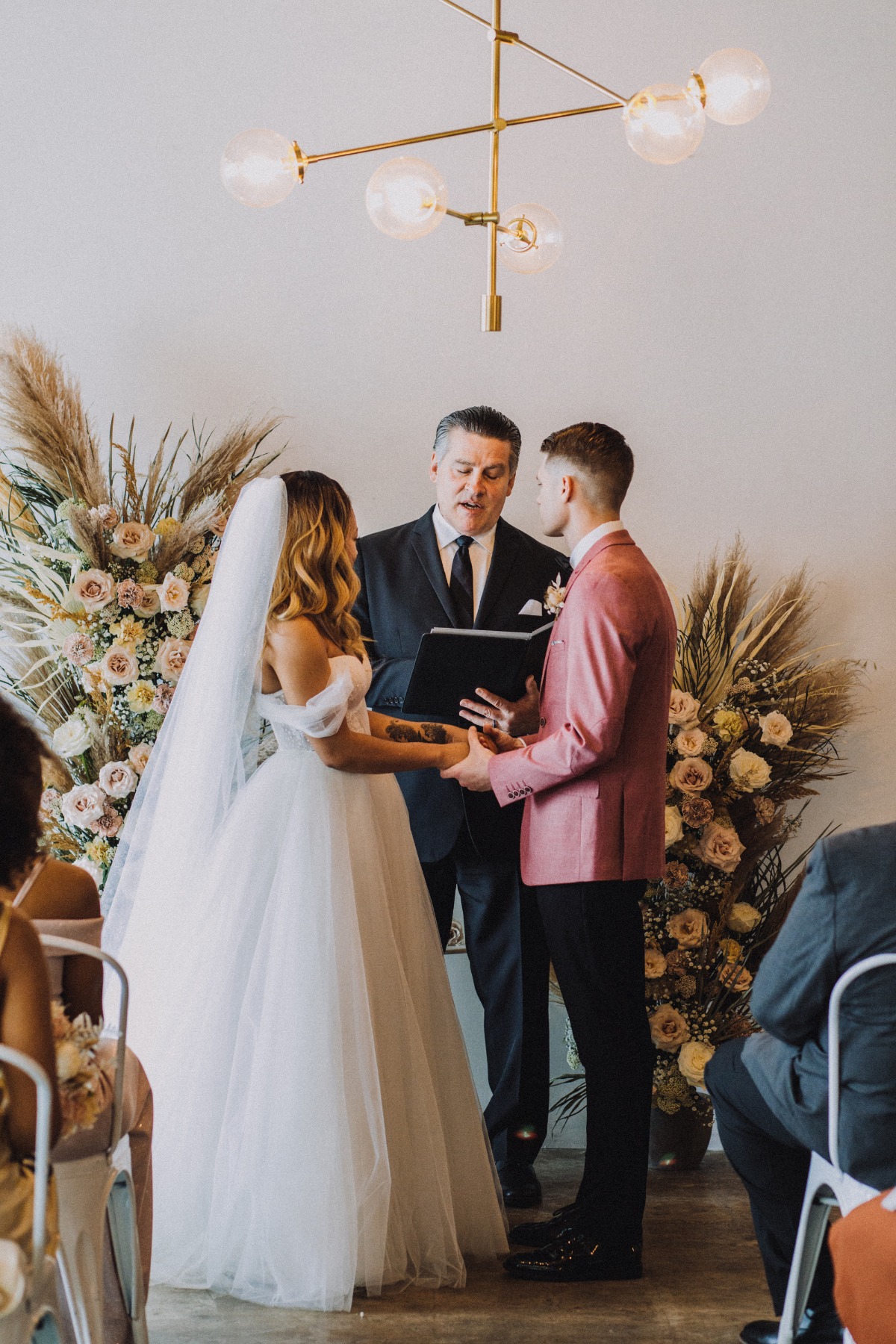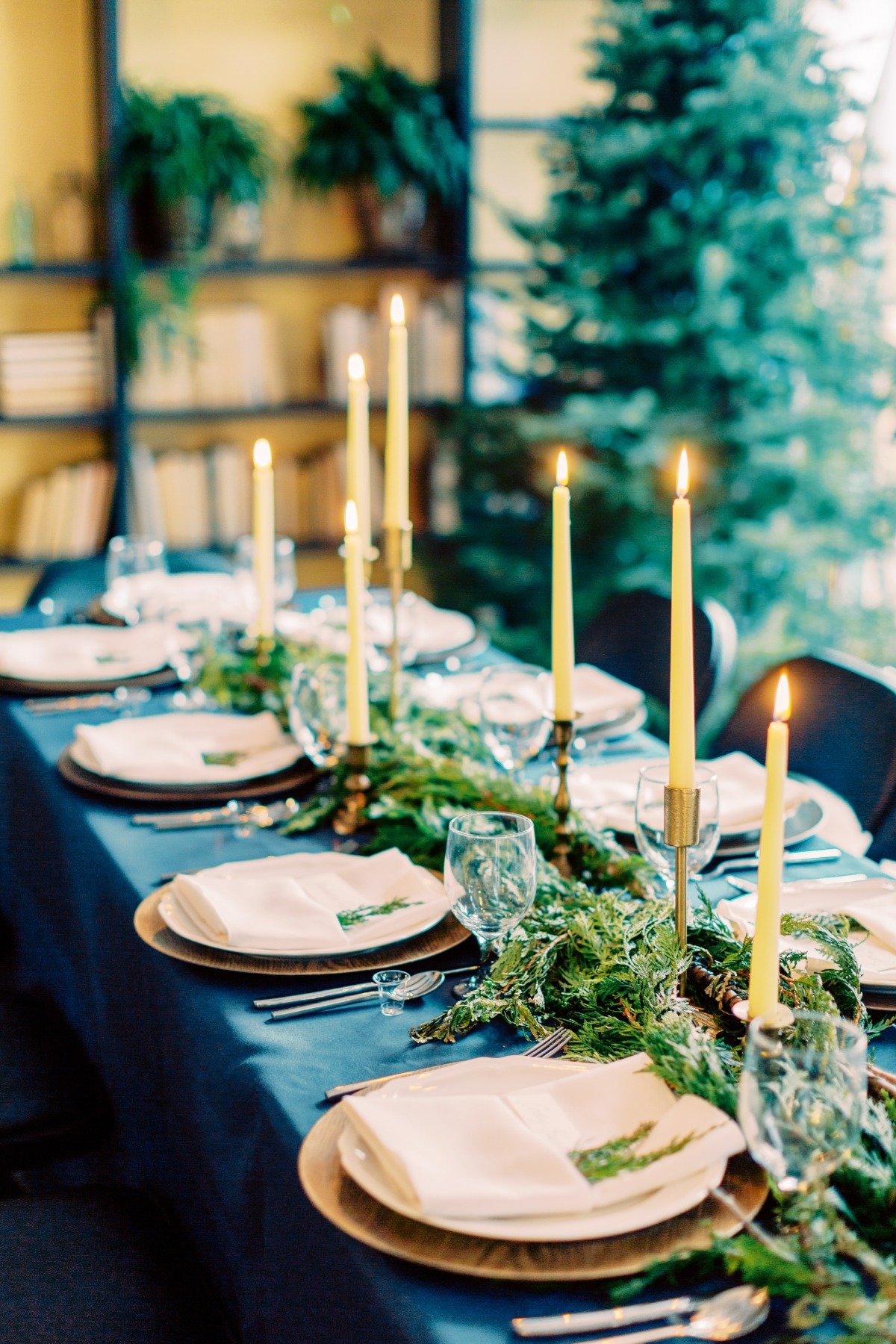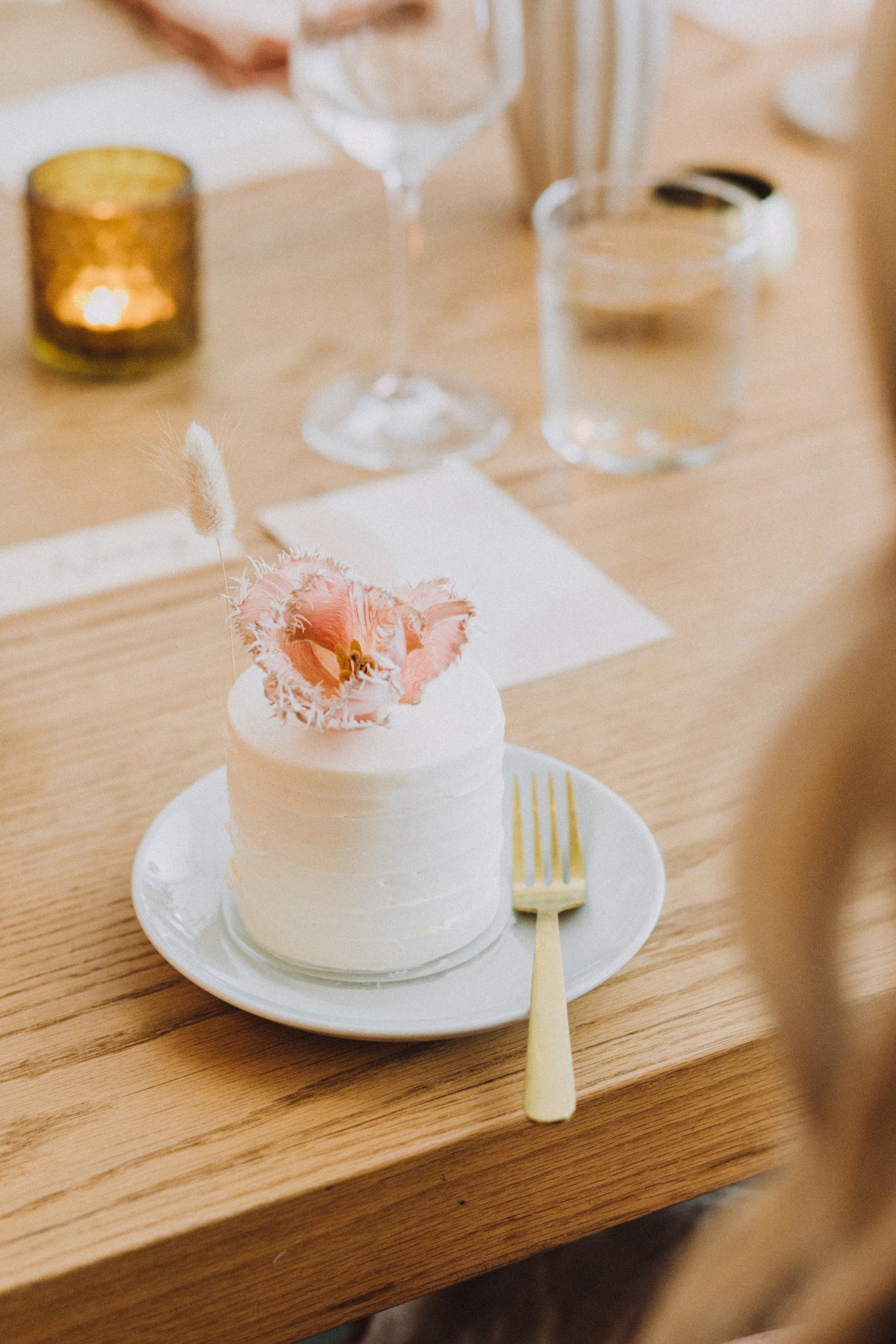Keeping Wedding Guests (and Yourself!) Safe During Omicron

With Omicron’s high rate of transmissibility making headlines, many engaged couples are wondering what’s in the cards for their 2022 weddings. Rest assured that the industry does not anticipate a return to 2020’s shutdown, as wedding professionals have observed and learned how to execute safe events throughout the pandemic.
Still, it’s essential to understand that everyone carries a different risk tolerance, so you, your vendors, and your guests must respect one another’s feelings and decisions.
As you get closer to your wedding date, keep these best practices close to protect the health and safety of yourself, your guests, and your vendors.
Use local mandates for guidance.
As we’ve seen in recent years, every locality handles pandemic guidelines differently. While your city may require masks in public spaces, your state might not have the same mandate. Keeping up with these changes in an evolving situation can be a headache!
When in doubt, turn to your wedding planning team for guidance. Industry pros stay informed of the latest updates and will keep you abreast of new requirements.
Leah Weinberg, owner and creative director of Color Pop Events, suggests going above and beyond to ensure all guests are safe and comfortable. “If your city isn't requiring that everyone attending an event be vaccinated, consider requiring that all of your wedding guests be vaccinated,” she states.
Likewise, “if your city hasn't instituted any kind of testing component in connection with events, consider hiring a company to administer on-site rapid tests as guests arrive at the wedding,” Weinberg adds. “There are also options to implement social distancing and mask requirements to make the wedding even safer.”
Establish contingency plans with your team.

Backup plans are essential for risk management even in the best times and should be considered a must-have for weddings during the pandemic. Work with your team to assess potential risks and develop solutions for each. What happens if you or your partner test positive? What about your officiant, photographer, or planner?
As Tara Melvin, owner of Perfect Planning Events, explains: “Because of its yielding, unpredictable nature, planning a wedding during the COVID-19 pandemic presents a unique set of challenges amid a myriad of moving pieces. The landscape shifts and changes every day, leaving couples to face uncertain circumstances and daunting decisions. Your Plan-B should include an alternative wedding date, guest list of a smaller size, and a positive mindset that everything is going to be okay.”
The last part is critical — as Melvin says, a positive mindset is key to a smooth change in plans if deemed necessary. So you’ll get down that aisle, don’t worry!
Move your wedding outside.
Experts have confirmed that gathering outdoors is the safest way to go, so consider alternative sites at your venue if possible. Many event properties have created outdoor spaces to accommodate pandemic weddings, so connect with your venue coordinator to see what’s possible if weather permits.
“The safest environment to have a social gathering in at this time is in the great outdoors,” confirms Bri Marbais, bridal stylist for The Bridal Finery. “If at this point couples are not already implementing outdoor space for their wedding, now is the time to discuss the options with your venue. It doesn't necessarily mean the outdoor option has to be utilized but knowing the options and having a backup plan will ease couples' minds.”
Alternatively, moving to a larger indoor space can also allow for increased social distancing and better airflow. Again, your venue coordinator knows best!
Consider testing or vaccination requirements.
Most guests will feel more comfortable attending a wedding with testing or vaccine requirements, as it shows an extra level of precaution from the couple and their vendors. But with rapid tests, PCRs, two-dose vaccines, and boosters, it will be necessary for couples to define requirements for attendance and how proof is accepted.
“Know your testing options,” urges Cathy O’Connell, owner of COJ Events. “On-site testing is still common, and we do it a lot at our events - however, the cost per person is high. Self-testing before attendance requires a trust process. On-site rapid tests with a monitor are also common and much less expensive if clients can find the tests.”
As for proof of vaccination, O’Connell says: “Requiring vaccination and booster is also a common solution - you need to decide who the monitor is? We have managed this for clients for their guests and vendors, but it requires a lot of follow-up and management.”
Embrace it rather than deny it.

COVID is here to stay awhile, and, unfortunately, there are no two ways around it. While this can be a harsh fact to accept, try taking a page from your wedding team’s book! Instead of denying the reality of the situation or “waiting it out,” industry professionals are moving forward by viewing the pandemic as an opportunity rather than a disaster.
Jennifer Sulak, wedding photographer for Weirdo Weddings, speaks to the importance of transparency about health and safety with guests: “Being upfront and honest from the beginning as well to all of your guests who may be scared to attend, everyone shows up at their own risk. Even more so, please be self-aware of your own health status first, as well as your closest relationships around you.”
But that doesn’t mean COVID has to be a downer! Sulak shares her experience with couples who make safety measures part of their wedding experience: “I have seen great success (and fun) when stations were set up in all avenues (not just bathrooms) with sanitizing stations and mask-wearing.”
If nothing else, a healthy acceptance of the situation allows for a more comfortable planning process and safeguards your emotions in the case of any changes. Let’s work with the circumstances, not against them!
Play the safe route.
A sniffle here or a sneeze there may not have been reasons for concern before 2020, but nowadays, even minor symptoms are cause for reconsideration. Nora Sheils, founder of Bridal Bliss and co-founder of Rock Paper Coin, encourages couples to instate clear guidelines for guests who feel ill: “Not feeling 100%? Encourage your guests to stay home, even if they've tested negative.”
Sheils continues: “We know that false negatives are a possibility, so if a guest is feeling even the slightest bit off, they should be made to feel like they should stay home with no feelings hurt. The safest event is an event where no one in attendance has the virus, so this is one way to get you there and give your guests a little peace of mind as well.”
This rule should also go for your wedding team, as the risk is not worth inviting to your big day. That’s why contingency plans are so vital at this stage of the pandemic, as plans can change in the blink of an eye. You’ll feel much better knowing that a backup vendor is on standby or that your grandparents can still tune in via live stream.
Know when it’s time to postpone.

Many couples are hesitant to postpone their weddings, as some have already done so, and others simply want to say “I do” and skip ahead to married life. They’ve waited long enough — and who wants to put off their happily ever after?
While postponement rates aren’t nearly as high as 2020 or 2021, some couples may still need to consider postponement, given their personal situation. For example, high-risk family members or a heavily international guest list could be enough reason to wait until Omicron (and other variants) clear up.
Jaclyn Watson, owner of Jaclyn Watson Events, elaborates: “Some signs that it may be best to postpone the wedding are things like your guest count being drastically reduced or state mandates making it difficult to carry out your event safely. Another sign is that the incoming invitation list is more no’s than yes’s.”
“We highly recommend that you stay flexible and lock in a secure backup plan, so that should postponement happen, you are prepared and aware of the next step!” Watson adds. “One of the ways we have seen couples work with the mandates is by downsizing their initial wedding and then having a larger party at another time.”
Know the terms of your contract.

If postponement is on the table, make sure you understand what your contract says about payments, timing, and other vital details to cover your bases as best possible.
“A postponement without a government restriction might put you outside of Force Majeure and thus at great financial risk,” says Janice Carnevale, owner of Bellwether Events. “You need to read your contracts carefully. You usually need to submit all final payments and details at least 30 days out, so it would be best to make a decision to postpone well before then.”
And heads up: Be prepared for stricter enforcement of terms than before. Event pros are now working with weddings booked after the start of the pandemic, so couples will have signed a contract with a reasonable understanding of the circumstances.
Still, an airtight contract is no reason to host a wedding that is risky and uncomfortable for guests. Couples who want to remain in contract and reduce risk may consider downsizing their guest lists instead, limiting their headcount to their closest circle.
If planning your wedding amidst uncertain conditions starts to feel overwhelming, look to your wedding team for support and guidance. They’ve been doing this for a few years now and can ease concerns, both logistically and emotionally.
And at the end of the day, remember what matters the most: marrying the love of your life! Whether it happens this year or next, with 200 people or 20, your love remains strong and you’ll navigate this experience together.
Meghan Ely is the owner of wedding PR and wedding marketing firm OFD Consulting. Ely is a sought-after speaker and a self-professed royal wedding enthusiast.
- Consultant: Meghan Ely
- Dress & Apparel: The Bridal Finery
- Event Planning & Design: COJ Events
- Event Planning & Design: Jaclyn Watson Events
- Event Planning & Design: Bridal Bliss
- Event Planning & Design: Color Pop Events
- Event Planning & Design: Perfect Planning Events
- Event Planning & Design: Bellwether Events
- Wedding Apps & Insurance: Rock Paper Coin
- Wedding Photographers: Weirdo Weddings
- Wedding Photographers: Savannah Brown Photography
- Wedding Photographers: Mandee Johnson Photography
- Wedding Photographers: Cody Kurtz Photography